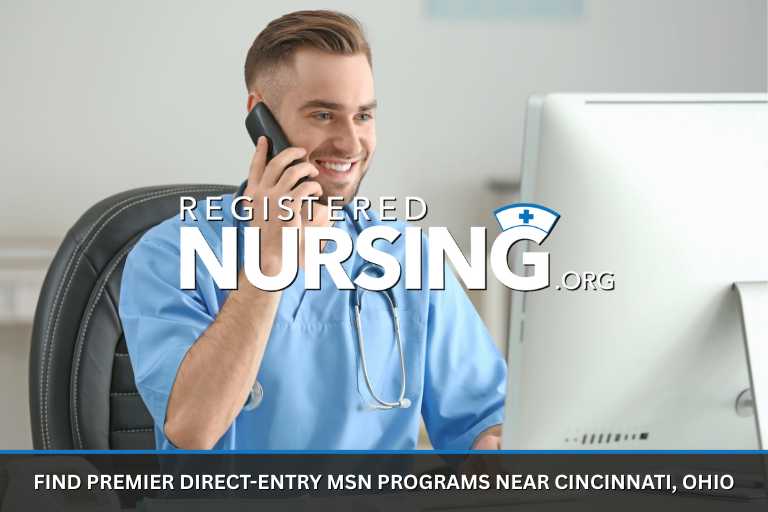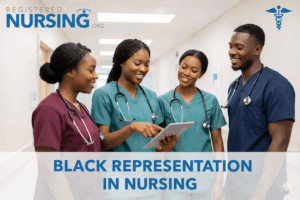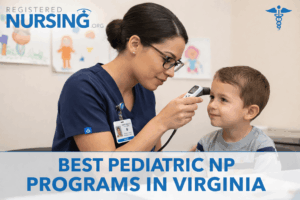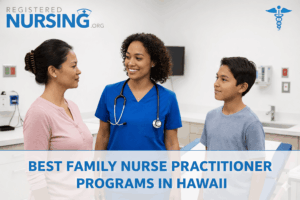Discover Premier Direct-Entry MSN Programs Near Cincinnati, Ohio
- 2026 Premier Direct-Entry MSN Programs Near Cincinnati, Ohio
- Why Choose a Direct-Entry MSN in Cincinnati?
- What to Expect in a Direct-Entry MSN Curriculum
- Cincinnati's Healthcare Landscape: A Learning Lab
- Admission Requirements and Applicant Profile
- Who Should Consider This Path?
- Cost, Financial Aid, and Support Resources
- Career Outlook: Beyond Licensure
- Taking the Next Step Toward a Nursing Career in Cincinnati
- Sources
- Latest Articles & Guides

For individuals in Cincinnati holding a non-nursing bachelor's degree and seeking a fast, strategic path into advanced nursing practice, direct-entry Master of Science in Nursing (MSN) programs offer a compelling option. These intensive programs allow career changers to transition into nursing at the graduate level, combining foundational nursing education with advanced practice competencies. With the Greater Cincinnati area's robust healthcare landscape and growing demand for nurse leaders, now is a prime time to explore these graduate pathways.
Across the United States, the need for registered nurses continues to rise. The Bureau of Labor Statistics projects a 6% growth in RN employment through 2032, adding more than 193,000 jobs annually. In Ohio, the shortage of nurses in both urban and rural areas has made fast-track, graduate-level entry points essential to filling critical workforce gaps. Direct-entry MSN programs in Cincinnati support this goal, enabling non-nursing degree holders to transition quickly and confidently into leadership-ready nursing careers.
2026 Premier Direct-Entry MSN Programs Near Cincinnati, Ohio
University of Cincinnati
Cincinnati, OH - Public 4-Year - uc.edu
Master's - Accelerated Direct-Entry Master of Science in Nursing (MSN)
Campus Based - Visit Website
University of Cincinnati's Accelerated Direct-Entry MSN program provides a transformative pathway for bachelor's degree holders seeking nursing careers. Spanning five semesters, this innovative curriculum offers comprehensive nursing preparation through interdisciplinary collaboration within an Academic Health Center. Students gain robust clinical experiences beginning in the fifth week, accessing Level I trauma centers, high-risk obstetric units, and top pediatric hospitals. The program emphasizes technology-enhanced learning, simulated patient care, and small class sizes with built-in NCLEX preparation. Admission requires prerequisite courses completed with a minimum B-minus grade, positioning graduates for advanced nursing roles and future practitioner education.
- Five-semester program.
- Prepares for RN licensure.
- Interdisciplinary collaboration opportunities.
- Variety of clinical experiences.
- Simulated patient care.
- Technology-enhanced learning.
- Small class sizes.
- Built-in NCLEX preparation.
- Prerequisite courses required.
- B-minus or above in prerequisites.
Why Choose a Direct-Entry MSN in Cincinnati?
Cincinnati stands at the intersection of healthcare innovation and academic opportunity. As the largest metropolitan area in southwest Ohio, it supports a diverse healthcare system with major hospitals, research centers, and community-based clinics. According to the Ohio Department of Job and Family Services, nursing is among the fastest-growing occupations in the region, driven by an aging population and provider shortages.
Direct-entry MSN programs are designed for individuals who have earned a bachelor’s degree in another field and are ready to enter the nursing profession at an advanced level. Ohio-based nursing programs are aligned with the needs of the regional workforce and often emphasize leadership, care coordination, health equity, and population-based care.
Graduates are typically eligible to take the NCLEX-RN exam and may also pursue roles as nurse educators, clinical nurse leaders, or specialists, depending on the program’s focus.
What to Expect in a Direct-Entry MSN Curriculum
The structure of a direct-entry MSN degree program differs from a traditional MSN, starting with foundational pre-licensure nursing courses before advancing into master's-level coursework. This progression ensures that students build clinical competencies while also developing leadership and analytical skills.
Key components often include:
- Pre-Licensure Foundations: Health assessment, pharmacology, pathophysiology, and nursing fundamentals
- Clinical Experience: Rotations in local hospitals, public health agencies, and specialty clinics across the Cincinnati metro area
- Graduate Coursework: Evidence-based practice, health systems leadership, informatics, and population health
| Program Phase | Description |
| Pre-Licensure Segment | Covers essential clinical and foundational nursing courses |
| Clinical Rotations | Provides hands-on learning in local Cincinnati-area healthcare facilities |
| Advanced MSN Courses | Focuses on leadership, public health, informatics, or educator preparation |
Programs often last between 20 and 36 months, depending on the format and credit requirements. Due to the intensity of the curriculum, most direct-entry MSN programs are full-time, though some include online or hybrid learning components.
Cincinnati's Healthcare Landscape: A Learning Lab
Cincinnati's dynamic healthcare ecosystem makes it an ideal environment for hands-on MSN training. The region is home to leading hospitals, federally qualified health centers, specialty clinics, and long-term care facilities.
Direct-entry MSN students benefit from this diversity through rotations and internships that expose them to a wide array of clinical and community settings. Cincinnati's emphasis on interdisciplinary collaboration and patient-centered care helps shape nurses who are ready to lead and innovate.
In addition, Cincinnati's unique geographic footprint, spanning the borders of Ohio, Kentucky, and Indiana, enables students to gain insight into multistate licensure considerations and healthcare delivery variations across state lines.
Admission Requirements and Applicant Profile
Prospective students should be prepared for a competitive application process. Programs seek individuals with strong academic records and a clear commitment to entering the nursing profession through an accelerated, direct-entry pathway.
Typical admissions requirements include:
- Bachelor's degree in a non-nursing discipline
- GPA of 3.0 or higher (minimum may vary)
- Completion of prerequisite science and statistics courses
- Personal statement outlining motivation for nursing
- Letters of recommendation (academic and/or professional)
- Résumé detailing academic and work experience
- Interview or situational judgment assessment
Some programs may also require the GRE, though this is becoming less common.
Applicants with prior healthcare experience, such as volunteering, EMT work, or shadowing, may stand out in the selection process, particularly when applying to competitive tracks.
Who Should Consider This Path?
Direct-entry MSN programs serve a diverse student population with unique motivations. These individuals bring prior professional expertise and are often seeking a values-driven, high-impact career shift.
This path may be ideal for:
- Career Changers: Individuals leaving fields like education, public policy, psychology, or the sciences
- Mid-Career Professionals: Those seeking a meaningful second act in healthcare leadership or patient advocacy
- Mission-Driven Learners: Applicants motivated by health equity, public service, and interdisciplinary care
The Cincinnati region's diverse demographics and public health priorities make it a particularly supportive environment for aspiring nurses interested in social impact and systems-level thinking.
Cost, Financial Aid, and Support Resources
The financial commitment of graduate education is significant, but resources are available to reduce cost barriers. Cincinnati residents can access state and federal programs, along with locally based aid.
| Funding Type | Description |
| Federal Student Aid | Graduate-level FAFSA eligibility, including Direct Unsubsidized Loans |
| Nursing-Specific Scholarships | From Ohio-based nursing associations and healthcare foundations |
| State Loan Repayment Programs | For graduates who commit to working in underserved or shortage areas |
| Employer Tuition Support | Partnerships with hospitals or clinics offering tuition reimbursement |
Students are advised to begin financial planning early and explore service-linked funding that supports post-graduation employment in high-need areas.
Career Outlook: Beyond Licensure
Graduates of direct-entry MSN programs are qualified to practice as registered nurses and may also assume leadership roles within clinical or administrative settings. The Cincinnati metro region offers strong employment opportunities in both hospital-based and community-centered care.
Common job titles for MSN-prepared nurses include:
- Clinical Nurse Leader (CNL)
- Nurse Educator or Faculty Member
- Population Health Coordinator
- Case Manager or Quality Improvement Specialist
According to the Bureau of Labor Statistics, nurse practitioners and other advanced practice nurses earn significantly more than the median salary for all occupations. In Ohio, demand for MSN-prepared nurses continues to rise due to provider shortages and expanding roles in telehealth, preventative care, and leadership.
Taking the Next Step Toward a Nursing Career in Cincinnati
The direct-entry MSN pathway offers an accelerated and impactful route into professional nursing for bachelor's degree holders ready for a career change. In Cincinnati, where healthcare access, community health, and innovation converge, students benefit from rich clinical experiences and a strong professional network.
Prospective applicants should begin by reviewing program prerequisites, researching curriculum structures, and exploring clinical site opportunities. Attending virtual or in-person information sessions can also provide deeper insight into expectations and program culture.
Choosing to pursue a nursing program in Cincinnati, Ohio, is more than a professional decision; it's a commitment to serve, lead, and grow within one of Ohio's most dynamic healthcare regions.
Sources
- Bureau of Labor Statistics: Nursing
- BLS Occupational Employment and Wages: Nurse Practitioners
- Ohio Department of Job and Family Services: Labor Market Information
- American Association of Colleges of Nursing
- National Advisory Council on Nurse Education and Practice
Latest Articles & Guides
One of the keys to success as a registered nurse is embracing lifelong learning. Our articles and guides address hot topics and current events in nursing, from education to career mobility and beyond. No matter where you are on your nursing journey, there’s an article to help you build your knowledge base.
Browse our latest articles, curated specifically for modern nurses.



